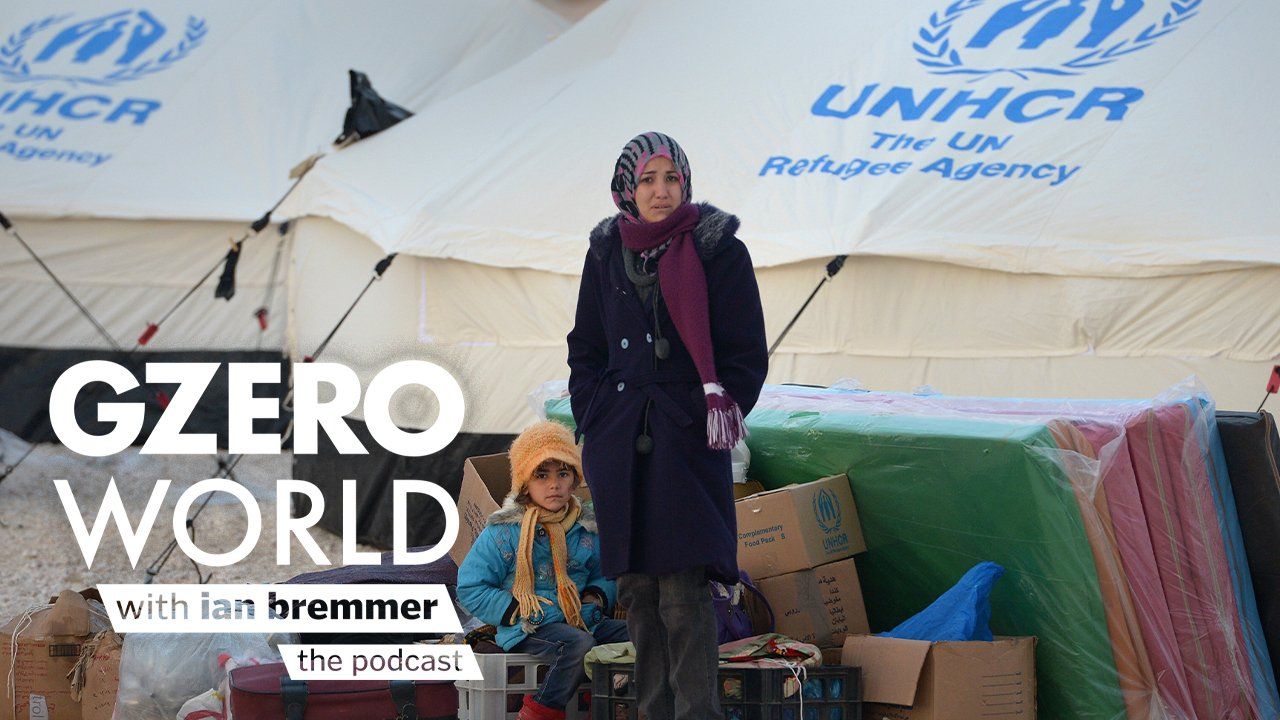GZERO World with Ian Bremmer Podcast
August 23, 2025
Listen: The number of people forced to flee their homes because of war, persecution, humanitarian disaster or political collapse topped 123 million people in 2024. That’s double what it was just 10 years ago. Yet just as the need has exploded, the global aid system is unraveling. On the GZERO World Podcast, David Miliband, president & CEO of the International Rescue Committee sits down with Ian Bremmer to discuss the growing crisis as the number of refugees continues to rise and the US, once the anchor of the global aid system, shuts down USAID and drastically pulls back foreign funding.
Miliband says we’re facing “a new abnormal,” with 275 million people facing humanitarian emergencies in 20 countries in crisis. The vast majority of displaced people are hosted in low and middle income countries, meaning the world’s poorest and most under-resourced places are shouldering a disproportionately high share of the burden. Miliband and Bremmer discuss the worsening humanitarian situation in places like Sudan and Gaza, the impact of US aid cuts, whether any nation or group of nations can fill the void, and where Miliband sees glimmers of hope amid so many intractable problems.
Subscribe to the GZERO World Podcast on Apple Podcasts, Spotify, Stitcher, or your preferred podcast platform, to receive new episodes as soon as they're publishedMore For You
- YouTube
For many in Iran, it’s a waiting game for how long Ayatollah Khamenei has left to live.
Most Popular
An army soldier stands guard at a post at the Friendship Gate, following exchanges of fire between Pakistan and Afghanistan forces, at the border crossing between the two countries in Chaman, Pakistan February 27, 2026. Picture taken with a mobile phone.
REUTERS/Abdul Khaliq Achakzai
In a 30-minute call on Thursday, President Donald Trump reportedly told Ukrainian President Volodymyr Zelensky he wants to end the war with Russia as soon as possible — aiming for a deal by summer, but ideally within weeks.
Former British ambassador to the U.S. Peter Mandelson leaves his residence after he was released following his arrest by London police on Monday on suspicion of misconduct in public office, following the release of U.S. Justice Department files linked to the late financier and convicted sex offender Jeffrey Epstein, in London, Britain, February 26, 2026.
REUTERS/Toby Melville
The ghost of Jeffrey Epstein continues to haunt the world.
Think you know what's going on around the world? Here's your chance to prove it.
© 2025 GZERO Media. All Rights Reserved | A Eurasia Group media company.
